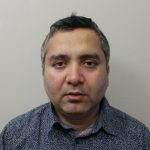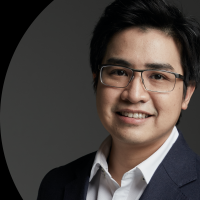- This topic has 15 replies, 14 voices, and was last updated 3 years, 12 months ago by
 Taksin Ukkahad.
Taksin Ukkahad.
-
AuthorPosts
-
-
2022-01-21 at 9:01 am #34747
 Wirichada Pan-ngumKeymaster
Wirichada Pan-ngumKeymasterPlease share about the work towards the UHC scheme in your country, what works and what needs to be done to make it work, strength and weakness, for example. (10 marks)
-
2022-02-04 at 9:02 pm #34876
 Auswin RojanasumapongParticipant
Auswin RojanasumapongParticipantThailand’s Universal Health Coverage (UHC) is called “30 Baht Treat All” (pay for only 0.90 USD for each hospital visit). This scheme is available for every Thai that has a national ID and not in another health scheme (social security or civil servant). The patient can make a visit to their nearest health care provider that they are registered and pay 30 baht (0.90 USD) for any medical problems. Right now, the system is transforming to make the patient easier to access care by widening the condition of hospital visits, which the patient can visit any hospital without having to visit their nearest registered health care provider (“30 Baht Treat Anywhere”).
The good thing about this UHC scheme is that everyone in Thailand can access health care services without worrying about their economic status, so it helps everyone with justice.
While the system looks promising, especially new transformation, there are some concerns about the quality of care and resources distribution that needs to be considered. For instance, not every area has enough health care providers to serve the population in each area, or the funding and workforce might be lacking in some areas.
What needs to be done to make this UHC scheme works better is the distribution of resources must be done appropriately and develop every health care provider with a similar standard of care (not just a few “excellence centers”, but “equally excellence for all”), so the patient in any area can get the best quality of care as same as another area.
-
2022-02-05 at 8:51 pm #34878
Sri Budi Fajariyan
ParticipantHealth insurance in Indonesia is handled by an organization called BPJS. started in 2015 and has not yet reached UHC, BPJS coverage until 2021 is 85% of the population. The problem with BPJS in Indonesia is the financial deficit experienced by the agency. The financial deficit was resolved by increasing the contributions paid by the participants. this received a strong rejection from the community, but the government continued to do it, this was based on a survey which stated that the amount of contributions was very low than what was stipulated. In addition, the government also conducts a comprehensive BPJS management audit to determine the cause of the deficit. Previously, many people suspected the deficit was due to high levels of fraud, namely excessive claims made by health facilities, but based on the audit results, it was found that the low contributions caused losses.
since 2021, BPJS has finally experienced a financial surplus. This is due to the increase in the fees paid by participants and the pandemic period which makes visits to health facilities low.
BPJS continues to improve services, by providing convenience to participants. one of them is through the digitization of information systems. at the beginning of the implementation of this social security, patients had to queue for hours to get treatment. as is
e-JKN patients receive a queue number electronically.Improvement of services should continue to be carried out, as well as efforts to expand access by increasing the number of health facilities that collaborate with BPJS so that users have many choices of quality health facilities.
-
2022-02-08 at 1:54 am #34899
 Karina Dian LestariParticipant
Karina Dian LestariParticipantI think most of the complaints of BPJS users in Indonesia is a long wait time for treatment. There is also a sentiment that you are not treated well if you use BPJS, while that is not true. The problem is the healthcare personnel and facilities are limited and not distributed equally across the country. Improvement of service by increasing the workforce and adding more facilities is definitely needed.
-
-
2022-02-06 at 6:17 pm #34885
 Arwin Jerome Manalo OndaParticipant
Arwin Jerome Manalo OndaParticipantI think the prime example I can give is the implementation of Health Technology Assessment (HTA) as a fair and transparent mechanism in the selection of drugs, devices, vaccines, public health interventions, and the likes. It is the core of the Philippine Universal Health Care Act which was enacted in 2019. The premise of the HTA is that, every health technology (eg, a drug) that the government will fund is worth every penny or in Filipino, “sulit”.
I was involved in instituting the first formal HTA in the Philippines, dubbed as HTA Philippines. It is synonymous with Thailand’s HITAP and UK’s NICE. In fact, when we were starting, we invited speakers from Thailand (including Dr. Yot) and UK and have them train us on several aspects of HTA. Ever since, the Philippines has been in collaboration with Thailand for training resource needs and capacity building to enact the progressive role of HTA in the achievement of Universal Health Care.
Its major strength is, the HTA is composed of an independent body of experts in fields of clinical, economic, social, legal, and ethical aspects of a health technology. This ensures that the technology is suitable for funding by the national health insurance agency of the Philippines, while considering the totality of aforementioned fields. Before I left HTA, I was involved in the assessments of COVID-19 vaccines, investigational drugs. and diagnostic tests to ensure that they are safe and effective for nationwide implementation.
Its major weakness, perhaps, can be seen as a challenge. Diversity in the composition of support team is needed to ensure that the pre-work has been screened before being passed onto experts for deliberation.
-
2022-02-09 at 3:02 pm #34907
 Wirichada Pan-ngumKeymaster
Wirichada Pan-ngumKeymasterSmall world..I got the opportunities to work with the HITAP training team a bit but have never been to the HTA Philippines unit.
-
-
2022-02-07 at 4:23 am #34887
 Navin PrasaiParticipant
Navin PrasaiParticipantIn Nepal, Government has been providing necessary and emergency healthcare by the primary healthcare centers,health posts with no cost.But due to lack of healthcare workforce, remote geographical locations ,infrastructure and technologies many people are out of reach of these services.To full-fill this gap many private hospitals are increasing day by day but they are of big financial burden for general people.So,to have affordable, accessible and quality healthcare for all ,Nepal Government has been working to achieve the Universal Health Coverage even though there are lot of challenges to overcome.
-
2022-02-07 at 4:29 pm #34890
 TARO KITAParticipant
TARO KITAParticipantThe Universal Health Coverage in Japan dates back to 1961 when a public health insurance scheme was established to cover all citizens. And, following the Cabinet’s decision in 1973, to establish “One medical college in each prefecture” that improved the access to medical service, Japan achieved UHC, and subsequently became a country with one of the highest life expectancies in the world.
However, in today’s Japan, there are concerns about the sustainability of the insurance system. With its super-aging society, medical expenses are exceeding the income of the insurance system borne by the younger generation, and tax revenue is being spent to fill the gap.
In order to maintain the current system, an increase in the proportion of medical expenses paid by the patients is being considered, which is also raising the concerns that people with low income and pensioners will not be able to access medical services. -
2022-02-07 at 8:07 pm #34893
 Napisa Freya SawamiphakParticipant
Napisa Freya SawamiphakParticipantThai UHC covers treatment costs within the public hospitals and one person/patient is required to pay only 30 Baht for all treatment, the hospital will manage the rest using fixed funding from the government.
In my opinion, the strength is it supports healthcare costs to all people without considering the socio-economic status. It really values life and equality. However, the weaknesses are the dissimilarity of funding and the patients’ density in each hospital, leading to the difficulty of resources distribution. Also, the available treatment options are limited to drugs under the National list of essential medicine only, to save cost (cost-effectiveness); however, it might not be the best choice in some severe cases.
In order to make this UHC scheme works, I agree with Auswin that the distribution of resources must be planned and distributed properly for both funding and the health workforce.
-
2022-02-07 at 10:46 pm #34895
 Ashaya.iParticipant
Ashaya.iParticipantThailand’s policy on universal health coverage (UHC) create the coverage in healthcare towards Thai population at all stages of life. This policy provide the essential care to prevent, cure, and rehabilitate of the disease. The challenges of this scheme is enhancing the sustain policy to make the efficient, equitable and effective UHC. Besides, resource allocation should be carefully prioritized as well as promoting available care in all healthcare unit.
-
2022-02-07 at 11:00 pm #34896
 Anawat ratchatornParticipant
Anawat ratchatornParticipantI agree with Auswin and Napisa about UHC scheme in Thailand.
The most obvious benefit is ease of access to healthcare services for all Thai without any financial discrimination. With ’30-Baht treat all’, all Thai doesn’t need to worry about healthcare services’ fee and as a physician I experienced many goods aspect about the scheme.However,in my opinion, there are some aspects that needs improvements.
– To use pay-per-head policy might not fair for some hospital that has responsibility to take care of significantly more patient than others. Moreover,DRG might not cover costs that happen in reality. These can push some hospital to face with financial struggle and push hospital to deal with the problem itself.
– Similar to Auswin said, there are some inequality of treatment choices among different areas and also among different health insurance funding.
– The last one is controversial. I heard some providers said that UC might cause access to healthcare services too easy. Consequently, Thai people might care about their health less. Personally, I don’t agree with this statement.-
2022-02-09 at 3:07 pm #34908
 Wirichada Pan-ngumKeymaster
Wirichada Pan-ngumKeymasterInteresting theory on the last point 🙂
-
-
2022-02-08 at 2:01 am #34901
 Tossapol PrapassaroParticipant
Tossapol PrapassaroParticipantI agree with Auswin and other about the UHC scheme in Thailand. Furthermore, I would like to share some advantages for the patient who has universal health coverage.
In my point of view, as a surgeon, I notice that UHC will ensure that everyone has health insurance and can access to medical services equally, especially the operation that the cost of surgical instruments is very high so the low-income population has low potential to afford it. However, with the UHC they can receive equal treatment with a little money spent on it. UHC make healthier and longer life for the patient and reduce societal inequality. For the government level, universal health care reduces health care costs for the national finance, because the government can control prices for medications and services. Additionally, UHC also equalizes service which implies that everyone gets the same level of care.
Although there are many strengths as mentioned above, UHC also has a drawback, especially the burden of the budget that the hospital had to spend for the treatment of the patient. For the improvement in this aspect, I suggest that the government or hospital should analyze the cost-effectiveness of instruments that had been used and give information to practitioners to reduce that burden. -
2022-02-08 at 3:11 am #34902
 Pisit SaiwangjitParticipant
Pisit SaiwangjitParticipantIf I remember correctly, there was a issue about the budget distribution of Universal Health Coverage (UHC). UCH only compensates the hospital for 3,600 baht per capita per medical service. If the medical services are charged more than 3,600 baht, the hospital have to cover the exceed fees. I think that is some of the pitfall of the UHC scheme in Thailand and it maybe the reason why the hospitals have been in the red.
-
2022-02-09 at 3:11 pm #34909
 Wirichada Pan-ngumKeymaster
Wirichada Pan-ngumKeymasterThe cost effectiveness studies suggested by Tossapol may help improving hospital management!
-
-
2022-02-20 at 12:11 am #35160
 Taksin UkkahadParticipant
Taksin UkkahadParticipantAs Thai’s classmate statement. Thailand’s universal health coverage is a public welfare on medical service with patient will involve in payment process (co-payment policy) to get the standardized-low price medical service. These health system provide equity on medical service accessment from different level of people. However, these is one of public policy from the government and politician, if transformation is occur, the public health policy on UHC will changed according to the government. These process results to discontinue of medical care and related health projects. In addition, Thailand’s UHC spent a lot of money due to few payment from the patient. Therefore, budget management should be carefully considered.
Taksin U.
-
2022-02-20 at 12:12 am #35161
 Taksin UkkahadParticipant
Taksin UkkahadParticipantAs Thai’s classmate statement. Thailand’s universal health coverage is a public welfare on medical service with patient will involve in payment process (co-payment policy) to get the standardized-low price medical service. These health system provide equity on medical service accessment from different level of people. However, these is one of public policy from the government and politician, if transformation is occur, the public health policy on UHC will changed according to the government. These process results to discontinue of medical care and related health projects. In addition, Thailand’s UHC spent a lot of money due to few payment from the patient. Therefore, budget management should be carefully considered and monitoring.
Taksin U.
-
-
AuthorPosts
You must be logged in to reply to this topic. Login here
